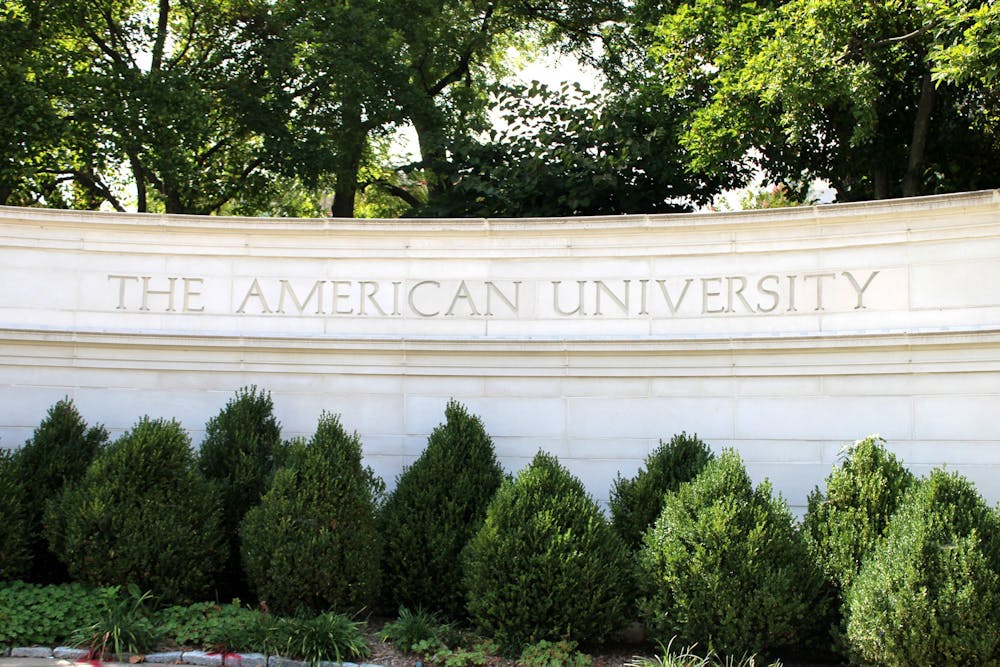The Foundation for Individual Rights and Expression published a letter sent to American University President Sylvia Burwell on Feb. 9 urging AU to revise their recently implemented policy, which banned indoor protests, revised student groups’ membership policies and placed restrictions on campus posters.
FIRE, which characterizes itself as an advocate for protecting individual rights on college campuses, took the unprecedented step of challenging the University’s new protest guidelines. Before this letter, FIRE had consistently rated AU’s Freedom of Expression Guidelines highly.
Since the Hamas attack on Israel on Oct. 7, 2023 that ignited the war in Gaza, AU, like many other colleges and universities, has turned “to suppressive tactics that might silence that conflict in the near term, but it does absolutely nothing to bridge these incredibly deep divides long term,” according to FIRE’s Director of Campus Rights Advocacy Alex Morey in an interview with The Eagle.
As the Israel-Hamas war engages college students in activism and discussion, Morey feels that universities should lean into that captivation and “marshall as many resources as possible to get students talking about the thing they care about.”
“A school like American is so well poised to provide productive avenues for that kind of discussion that we just get so disappointed,” Morey said.
The letter, posted to X (Twitter) on Feb. 12 said that this new policy violates and contradicts free speech principles granted to AU students and faculty in the institution’s own Freedom of Expression and Expressive Conduct policies.
“While AU is a private institution, its clear invocation of, and obligation to, free speech principles leads student and faculty to reasonably interpret those promises as concomitant with First Amendment Protections,” the letter said. “Having made these promises, AU is legally and morally required to honor them. And is thus limited in how it can regulate student and faculty speech.”
“There are already existing policies that track applicable law that keep students safe on campus,” Morey said, referencing Davis v. Monroe County, in which the Supreme Court notably ruled that schools can be sued for failing to address instances of student-to-student harassment, specifically sexual harassment in that case.
John Watson, associate professor in communication law and journalism ethics at AU, said FIRE’s interpretation of the case is correct, but there could be room to argue otherwise.
“The ruling is not a perfect fit for the AU circumstances, but it does set a tenor for the legal outcome of these types of free-speech controversies,” he told The Eagle in an email.
Morey also cited AU’s pre-existing posting policies, such as the Student Code of Conduct and non-Title IX discrimination policies, that are intended to keep students safe on campus.
AU’s Vice President and Chief Communications Officer Matt Bennett said the new protesting and postering policies on campus support safety and a sense of belonging among students.
“They are in place to address specific concerns and prevent disruption of educational and community activities that are fundamental to the AU experience,” he wrote in a statement to The Eagle. “The January 25 directives reinforce the responsibilities that all AU community members have for their expression under our Freedom of Expression Policy and Statement of Values.”
Morey added that if schools focus on continuously enforcing existing policies, there should be no need to implement policies that restrict speech. These vague new policies, she suggests, heighten student body anxiety about the potential penalties for voicing their own opinions.
“A university is exactly the kind of place where students are going to hear people express views that the student maybe has never heard before or maybe they disagree with,” Morey said. “But that’s part of an education.”
In the letter, FIRE requested a response from AU by Feb. 23, urging the University to clarify and reform these new policies promptly. If the University fails to respond, FIRE plans to “ramp up publicity,” according to Morey.
“Importantly, speech and expression, including protests, continue in numerous ways at AU,” Bennett said in a statement. “While we intend to respond to FIRE, our primary focus is and must be on our community and supporting our students, faculty, and staff.”
“That’s not the last they’ll hear from us,” Morey said.
Editor’s Note: SOC professor John Watson serves as a faculty adviser to The Eagle. He is not involved in any of The Eagle’s editorial decisions, including reporting, writing and editing.
Correction: A previous version of this article referred to Matt Bennett as Chief Information Officer. The article has since been updated to reflect his title: Chief Communications Officer.
This article was edited by Tyler Davis, Zoe Bell, Abigail Turner and Abigail Pritchard. Copy editing done by Luna Jinks, Isabelle Kravis, Sydney Kornmeyer and Ariana Kavoossi.





